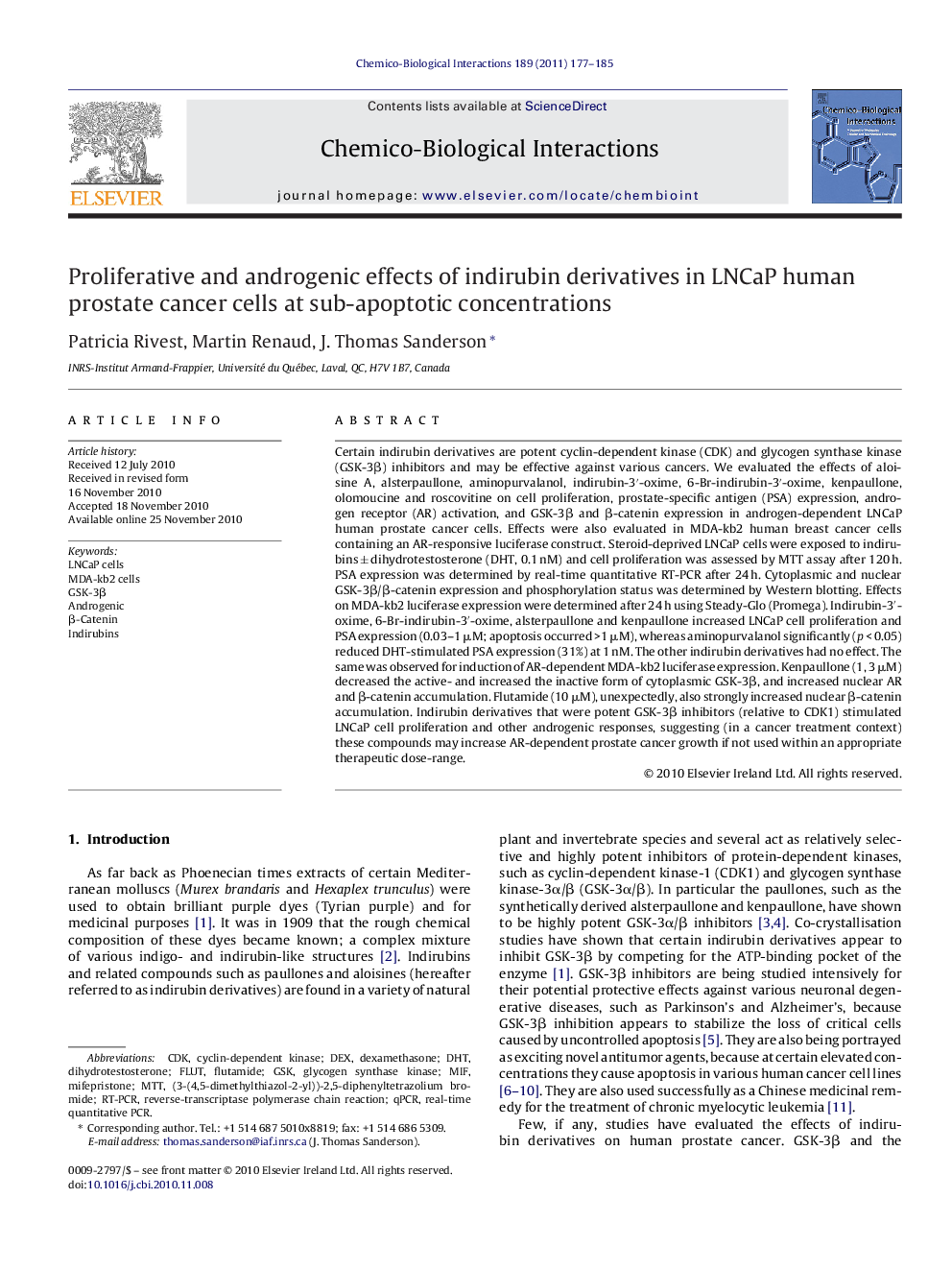| کد مقاله | کد نشریه | سال انتشار | مقاله انگلیسی | نسخه تمام متن |
|---|---|---|---|---|
| 2580994 | 1130169 | 2011 | 9 صفحه PDF | دانلود رایگان |

Certain indirubin derivatives are potent cyclin-dependent kinase (CDK) and glycogen synthase kinase (GSK-3β) inhibitors and may be effective against various cancers. We evaluated the effects of aloisine A, alsterpaullone, aminopurvalanol, indirubin-3′-oxime, 6-Br-indirubin-3′-oxime, kenpaullone, olomoucine and roscovitine on cell proliferation, prostate-specific antigen (PSA) expression, androgen receptor (AR) activation, and GSK-3β and β-catenin expression in androgen-dependent LNCaP human prostate cancer cells. Effects were also evaluated in MDA-kb2 human breast cancer cells containing an AR-responsive luciferase construct. Steroid-deprived LNCaP cells were exposed to indirubins ± dihydrotestosterone (DHT, 0.1 nM) and cell proliferation was assessed by MTT assay after 120 h. PSA expression was determined by real-time quantitative RT-PCR after 24 h. Cytoplasmic and nuclear GSK-3β/β-catenin expression and phosphorylation status was determined by Western blotting. Effects on MDA-kb2 luciferase expression were determined after 24 h using Steady-Glo (Promega). Indirubin-3′-oxime, 6-Br-indirubin-3′-oxime, alsterpaullone and kenpaullone increased LNCaP cell proliferation and PSA expression (0.03–1 μM; apoptosis occurred >1 μM), whereas aminopurvalanol significantly (p < 0.05) reduced DHT-stimulated PSA expression (31%) at 1 nM. The other indirubin derivatives had no effect. The same was observed for induction of AR-dependent MDA-kb2 luciferase expression. Kenpaullone (1, 3 μM) decreased the active- and increased the inactive form of cytoplasmic GSK-3β, and increased nuclear AR and β-catenin accumulation. Flutamide (10 μM), unexpectedly, also strongly increased nuclear β-catenin accumulation. Indirubin derivatives that were potent GSK-3β inhibitors (relative to CDK1) stimulated LNCaP cell proliferation and other androgenic responses, suggesting (in a cancer treatment context) these compounds may increase AR-dependent prostate cancer growth if not used within an appropriate therapeutic dose-range.
Figure optionsDownload as PowerPoint slideResearch highlights▶ Indirubins that inhibit GSK-3β are proliferative and pro-androgenic in LNCaP cells. ▶ Indirubins increase p-GSK-3β-Ser9/Tyr216 ratio and nuclear β-catenin accumulation. ▶ The androgen receptor antagonist flutamide also increases β-catenin accumulation.
Journal: Chemico-Biological Interactions - Volume 189, Issue 3, 1 February 2011, Pages 177–185